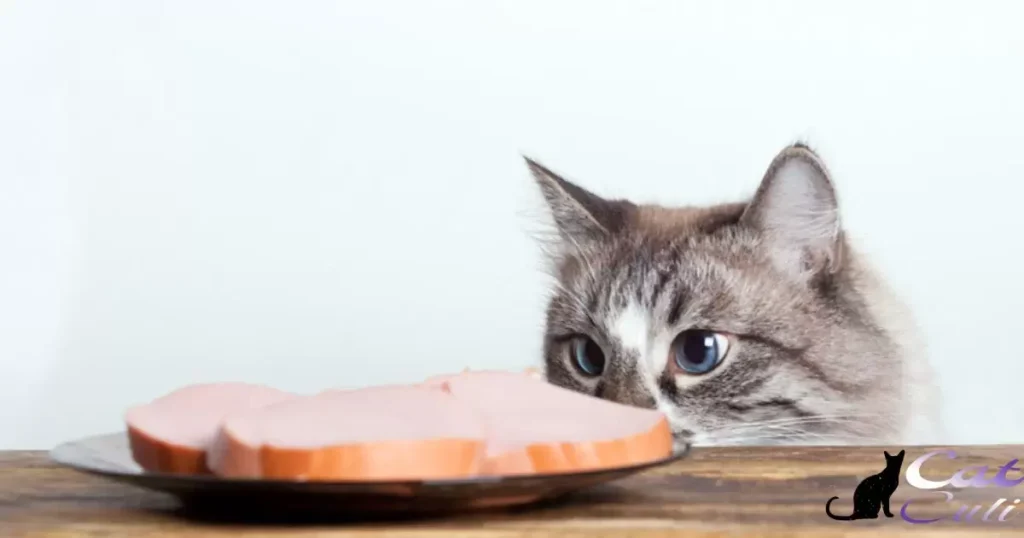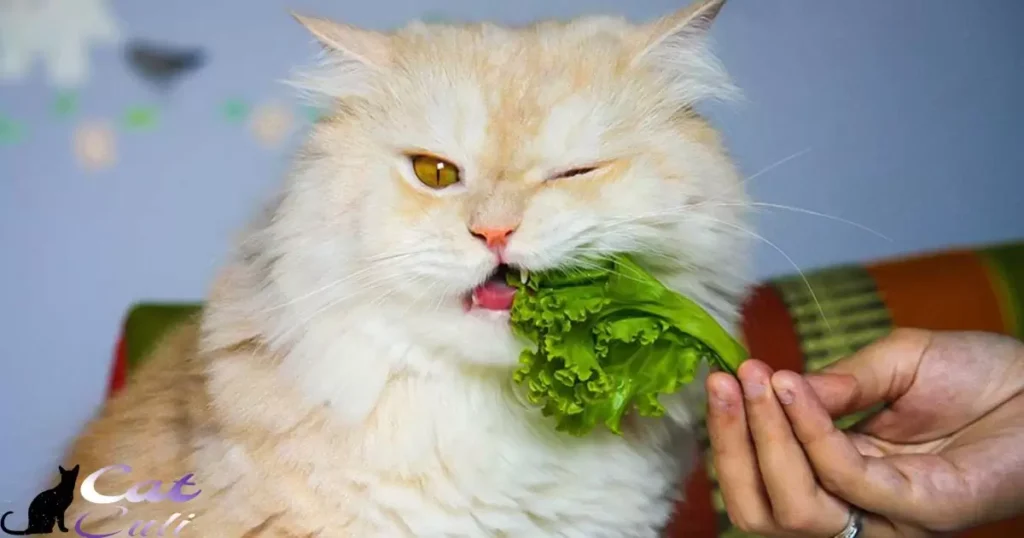Offer smaller, frequent meals throughout the day instead of one large meal. Use puzzle feeders or slow feeder bowls to make eating a more engaging and time-consuming activity. Provide mental and physical stimulation through interactive play to distract your cat from obsessing over food.
Are you wondering, How to make my cat less food obsessed? If your furry friend constantly begs for food or raids the kitchen, there’s a solution! Discover effective ways to curb your cat’s food fixation and foster a healthier relationship with mealtimes. Dive into simple strategies that’ll transform your cat’s behaviour and bring peace to your home.
Discovering how to make your cat less food obsessed is crucial for their health and your peace of mind. Stay with us to explore simple yet effective methods that will help curb your cat’s excessive focus on food, ensuring a happier and more balanced furry friend.
Dealing With Your Cat’s Food Obsession
Is your cat fixated on food? Managing your cat’s food obsession involves setting a consistent feeding schedule and offering smaller, frequent meals. Engage your cat in interactive play to divert their attention from food, ensuring both mental and physical stimulation.
By incorporating these strategies, you can help your cat develop a healthier relationship with food, promoting their overall well-being and reducing their obsession. Taking charge of your cat’s food obsession means creating an environment that encourages healthier habits.
Introduce puzzle feeders or slow feeder bowls to make eating a more engaging and fulfilling experience. Providing ample attention and affection outside of mealtimes helps redirect your cat’s focus away from food, fostering a more balanced and contented pet.
Make Sure Other Cats Aren’t Creating The Problem
To ensure other cats aren’t causing the issue, observe their interactions during mealtime. Monitor their behaviour closely while they eat to detect any bullying or intimidation. Separate cats during feeding times if there’s evidence of one dominating the others to prevent food-related stress.
Provide separate feeding areas for each cat to eliminate competition. This step ensures that each feline has their own space to eat peacefully without feeling threatened. By managing mealtime dynamics and offering individual feeding zones, you can minimize conflicts and reduce food-related issues among your cats.
How To Handle A Food Obsessed Cat
Dealing with a food-obsessed cat involves setting clear feeding schedules. Establish regular mealtimes to discourage constant begging. Incorporate interactive toys or puzzles during feeding to engage your cat mentally and slow down their eating pace.
Consider providing attention and playtime as an alternative to food rewards, redirecting their focus away from excessive eating habits.Another effective approach is to opt for specialized feeding equipment. Slow feeder bowls or puzzle feeders can extend meal duration and make feeding more engaging.
Wondering, Is my cat food obsessed? Try tools promoting slower eating habits, curbing the constant urge for food. Patience and consistency help manage this obsession, fostering a healthier food relationship.
Is Your Cat Obsessed With Food?
Is your cat constantly fixated on food? This obsession might indicate underlying issues. Monitor their behaviour closely; excessive food interest could signal boredom or anxiety. Engage your cat with interactive toys and a consistent feeding schedule to help distract and regulate their food obsession, promoting a healthier relationship with meals.
Some cats exhibit a strong food fixation, seeking food even when not hungry. This behaviour often stems from factors like boredom, stress, or a lack of mental stimulation. To address this, try enriching their environment with puzzle feeders or scheduled playtime, redirecting their focus away from food and towards engaging activities.
Is Your Cat Obsessed With Food?

This obsession might show through constant meowing or scavenging for extra snacks. Encouraging healthy eating habits can help. By establishing a regular feeding schedule and providing stimulating activities, you can divert your cat’s attention from food and promote a more balanced lifestyle.
It’s common for cats to develop a keen interest in food, but excessive fixation can lead to health issues. Combat this by engaging your cat in playtime and using puzzle feeders to make meals more engaging. With a bit of effort, you can help your cat enjoy meals without being overly fixated on food.
Signs That Your Cat Is Obsessed With Food
Does your cat constantly beg for food or hover around the kitchen? These actions might indicate a food obsession. They may meow persistently or even steal food if fixated. Another sign is rapid consumption of meals or searching for more despite having eaten. Identifying these behaviours early helps address your cat’s food obsession effectively.
Observe if your cat becomes aggressive during feeding times or excessively licks empty bowls. Such behaviours signal a fixation on food. Monitoring these signs will assist in understanding and managing your cat’s relationship with food better, ensuring their overall well-being and balanced eating habits.
Is Your Cat Hungry Due To An Underlying Medical Problem?
If your cat seems constantly hungry, it might not just be a behavioural issue. Underlying medical problems could trigger excessive hunger in cats. Health conditions like hyperthyroidism or diabetes often lead to increased appetite in felines. Visiting your vet for a check-up helps rule out any potential medical causes behind your cat’s persistent hunger.
Observing your cat’s eating habits and any sudden changes in appetite is essential. Sometimes, increased hunger signals an underlying health concern. Regular vet check-ups can catch these issues early, ensuring your cat stays healthy and happy.
How To Manage Food Obsession
Managing food obsession in pets involves establishing a consistent feeding routine. Create set mealtimes to regulate their eating habits. Utilize puzzle feeders or interactive toys during meals to engage their mind and slow down their eating pace. These methods help distract them from fixating solely on food, promoting a healthier relationship with meals.
Another helpful strategy is incorporating regular exercise into their daily routine. Engage your pet in play sessions or short walks to keep them physically active. Physical activity not only aids in weight management but also redirects their focus away from food, reducing their obsession and enhancing their overall well-being.
Subscribe To Get Pet Health Tips And Insights
| Topic | Subscribe To Get Pet Health Tips And Insights |
| Subscription Source | Online platform, Newsletter, Email updates |
| Content | Veterinary advice, Dietary guidance, Behavioural tips |
| Frequency | Weekly or bi-weekly updates |
| Benefits | Improved pet care, Healthier lifestyle, Expert guidance |
| Availability | Free or Paid subscription options |
Do Not Leave Bowls Of Food Out

Leaving food bowls out all day can encourage overeating in cats. It’s better to feed them at specific times during the day. This helps regulate their intake and prevents obsession with food. By establishing set meal times, your cat learns to eat when food is available, reducing the urge to constantly search for food.
Instead of free-feeding, try portioning their meals into smaller, scheduled servings. This method controls their food intake and creates a routine. When food isn’t constantly available, your cat becomes less fixated on eating all the time.
Rule Out Medical Reasons
- Consult a veterinarian to rule out any underlying medical conditions causing your cat’s food obsession.
- Conduct thorough health checks to ensure there are no physiological issues contributing to their behaviour.
- Discuss any potential concerns with the vet, including weight management, appetite changes, or digestive problems.
- Follow the vet’s recommendations for tests or dietary adjustments if any health issues are identified.
Food Obsession As A Symptom Of Disease
Food obsession in cats can signal underlying health issues. Excessive hunger or a sudden fixation on food might indicate potential illnesses such as hyperthyroidism or diabetes. Cats displaying this behaviour may need a vet check-up to rule out any medical conditions causing their heightened appetite.
Monitoring changes in your cat’s eating habits can provide early clues to address potential health concerns promptly.Addressing food obsession in cats involves understanding it as a potential symptom of underlying diseases.
Sudden or extreme changes in a cat’s eating behaviour could signify health issues like hyperthyroidism or diabetes. Seeking veterinary guidance and keeping a close eye on their eating patterns helps detect and manage potential illnesses early on, ensuring your feline friend’s well-being.
Eating Disorders In Cats
Eating disorders in cats, like in humans, can arise due to various factors. Changes in routine, stress, or underlying health issues may trigger these problems. Cats might display overeating, undereating, or unusual eating habits. Monitoring their eating patterns and seeking veterinary advice promptly can help address these disorders early on.
Owners can assist by providing a consistent feeding schedule and suitable portions. Ensuring a stress-free environment and engaging in interactive play can also alleviate eating issues. Consulting a vet for tailored advice is crucial to determine the root cause and develop a holistic approach to manage and improve your cat’s eating habits.
How To Stop Food Obsession In Cats
If your cat obsesses over food, engage them in regular play to redirect their attention. Use interactive toys or create a stimulating environment to keep them entertained. Additionally, establish a consistent feeding schedule to regulate their meals and reduce food-related anxiety.
You can also try puzzle feeders or slow feeder bowls to slow down eating and make mealtime more engaging. These tactics help in shifting focus away from food, promoting a healthier relationship with meals for your feline friend.
Former Stray Cat Food Obsession
Former stray cats often develop a strong obsession with food due to their past experiences of scarcity. To help your ex-stray cat overcome this obsession, establish a consistent feeding schedule. Offer smaller, regular meals to normalize their eating pattern and reduce the urgency around food.
Engage your cat in interactive play and provide mental stimulation to shift their focus away from food and towards other enriching activities.Understanding that former stray cats may exhibit food obsession is key to addressing their needs effectively.
By implementing a structured feeding routine and incorporating engaging activities, you can support your ex-stray cat in transitioning to a healthier and more balanced relationship with food, ensuring their well-being in their new home.
Cat Suddenly Obsessed With Food

This change might indicate various reasons, like stress, boredom, or underlying health issues. Check for any changes in routine, and consider consulting a vet to rule out medical causes. Additionally, try enriching their environment with toys or puzzles to distract them from fixating on food.
A sudden fixation on food in cats can signal a shift in their needs or health. Investigate any environmental changes or potential stressors at home, and keep an eye out for any other unusual behaviours. Offering mental stimulation through play or interactive feeding methods could help redirect your cat’s focus away from food obsession.
Cat Suddenly Obsessed With Human Food
Is your cat suddenly fixated on human food? This change in behaviour might be surprising, but it’s common. Cats can develop a sudden interest in human food due to curiosity or changes in their environment. They may be drawn to the smell or simply mimic their owners’ behaviours.
To address this, start by securing human food out of reach. Store it properly and consider feeding your cat a balanced diet to discourage their interest in other foods. Engage them in interactive play or provide stimulating toys to divert their attention away from human food and back to their own meals.
My Cat Is Obsessed With Wet Food
My cat’s obsession revolves around wet food. She constantly craves it, meowing persistently until she gets her desired meal. Whenever I try to offer dry food or any other alternative, she ignores it and continues to demand wet food. This obsession with wet food has become a daily struggle, and I’m unsure how to break this cycle.
I’ve attempted various strategies to divert her attention from wet food, yet nothing seems to work. Providing more playtime, introducing puzzle feeders, and adjusting meal schedules have all been unsuccessful. It’s challenging to manage her fixation on wet food, leaving me feeling perplexed and concerned about her eating habits and overall well-being.
Senior Cat Obsessed With Food
This common behaviour in older cats might signal various issues. It’s crucial to understand their nutritional needs as they age. Ensure their diet aligns with their age and health requirements, consulting a vet for advice. Engage your senior cat in stimulating activities and playtime to distract them from obsessing over food.
Encouraging a balanced lifestyle is key to keeping your older feline happy and healthy.As cats age, they might develop a heightened interest in food. Instead of viewing this solely as a behavioural issue, consider it a signal to adjust their care.
Monitor their feeding schedule closely, ensuring it aligns with their changing nutritional needs. Introduce interactive toys or puzzles to provide mental stimulation and alleviate their fixation on food. By actively engaging with your senior cat, you can help them maintain a more balanced and contented approach to meals.
FAQ’s
Why are my cats so obsessed with food?
Cats might obsess due to boredom, anxiety, or medical reasons. Assess their diet, routine, and health to address the root cause.
How do I get my cat to stop wanting food?
Create a structured feeding schedule and provide mental stimulation. Use puzzle feeders and interactive toys to distract them.
How do I stop my cat from being obsessed?
Introduce gradual feeding changes, offer enrichment activities, and consult a vet. Redirect their focus from food to engaging playtime.
How do I stop my cat from overfeeding?
Control portion sizes, opt for scheduled meals, and limit treats. Ensure they get enough exercise to manage their weight and hunger.
Conclusion
In Understanding How To Make My Cat Less Food Obsessed? consistency is key. By establishing a regular feeding schedule and offering balanced meals, you address their hunger while discouraging obsession. Introduce interactive toys or puzzles to make mealtimes engaging, shifting focus away from food.
Slowly implement changes in their routine and diet. Encouraging physical activity and mental stimulation not only distracts them from food but also promotes a healthier lifestyle. With dedication and a tailored approach, you’ll gradually guide your cat toward a more balanced relationship with food, ensuring their well-being and happiness.








